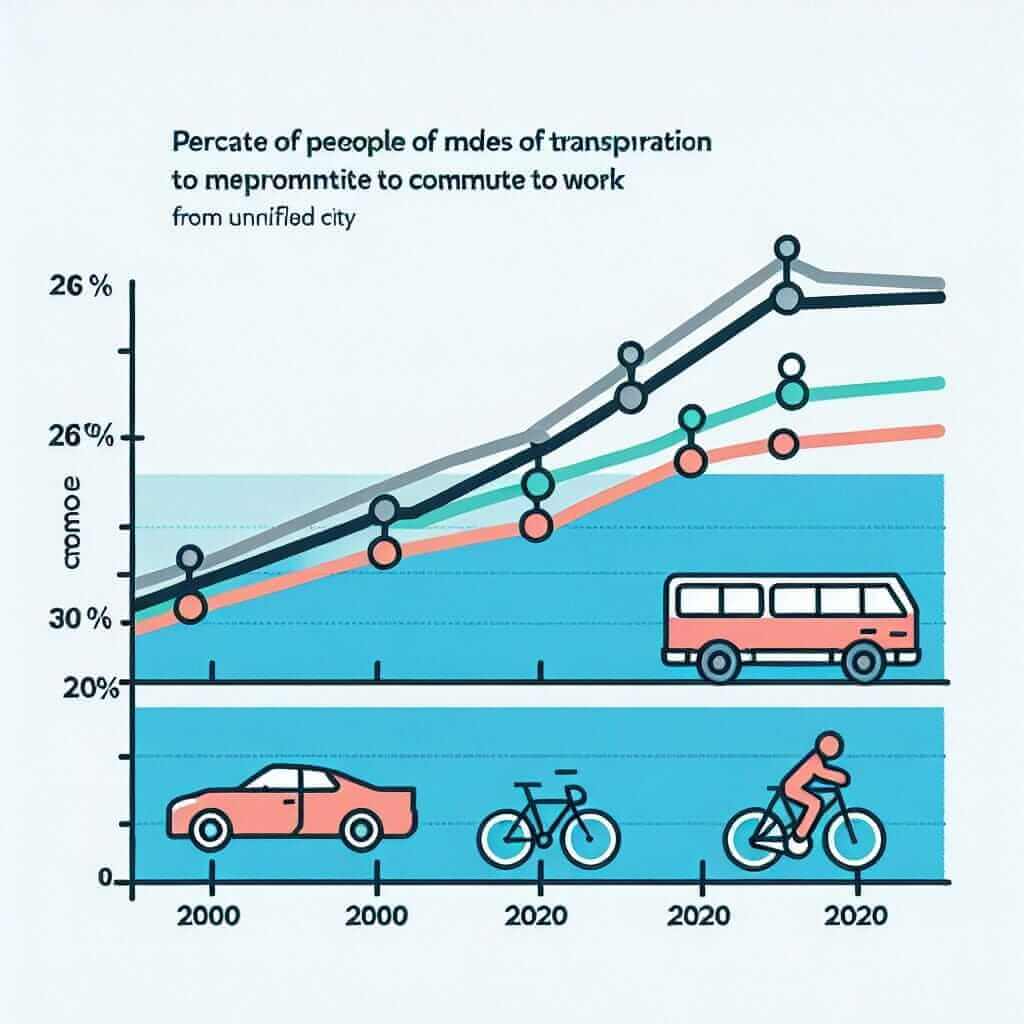The IELTS Writing section can seem daunting, but with the right preparation, you can confidently tackle both Task 1 and Task 2. As an IELTS instructor with over 20 years of experience, I’ve witnessed firsthand how targeted preparation leads to success. This guide will provide you with essential knowledge and strategies to excel in this section.
Understanding the IELTS Writing Tasks
Before diving into preparation, it’s crucial to understand what each task demands:
IELTS Writing Task 1
This task requires you to analyze visual information, such as a graph, chart, diagram, or process, and present your findings in a well-structured report of least 150 words.
IELTS Writing Task 2
Here, you’ll write an essay of at least 250 words expressing your opinion on a given topic. You’ll be assessed on your ability to argue logically, present well-supported ideas, and demonstrate a wide range of vocabulary and grammar.
Key Areas to Prepare for IELTS Writing
To succeed in both tasks, you’ll need to focus on several key areas:
1. Vocabulary and Grammar
- Mastering a Wide Range of Vocabulary: A strong vocabulary is essential for describing trends, comparing data, and expressing your thoughts clearly. Focus on learning vocabulary related to common IELTS themes such as education, technology, and the environment.
- Grammar Accuracy: Ensure you have a solid understanding of English grammar rules, particularly in sentence structure, verb tenses, and punctuation. Grammatical errors can significantly impact your score.
2. Coherence and Cohesion
- Clear Paragraphing: Structure your writing into logical paragraphs, each focusing on a single main idea. Use topic sentences to introduce the main point of each paragraph.
- Cohesive Devices: Utilize a variety of linking words and phrases (e.g., however, furthermore, in contrast) to connect ideas smoothly and logically.
3. Task Achievement
- Answering the Question: Fully address all parts of the question in a clear and focused manner. Avoid going off-topic or including irrelevant information.
- Supporting Your Ideas: Provide relevant examples and evidence to support your claims. This could include personal anecdotes, statistics, or historical facts.
4. Time Management
- Practice Under Exam Conditions: Familiarize yourself with the time limits for each task (20 minutes for Task 1, 40 minutes for Task 2). Regularly practice writing essays and reports within these time constraints.
IELTS Writing Example: Task 1
The chart below shows the percentage of people using different modes of transportation to commute to work in London from 2000 to 2020. Summarize the information by selecting and reporting the main features, and make comparisons where relevant.

Sample Response:
The chart illustrates the changes in commuting patterns in London between 2000 and 2020, focusing on the use of cars, public transportation, and bicycles.
Over the two decades, there was a significant decline in the percentage of people using cars to commute, dropping from 45% in 2000 to 25% in 2020. Conversely, the use of public transportation saw a steady increase, rising from 30% to 45% during the same period.
Interestingly, while bicycle use remained relatively stable between 2000 and 2010, hovering around 5%, it experienced a sharp rise in the following decade, reaching 15% by 2020.
Overall, the data suggests a shift towards more sustainable modes of transportation in London, with a decline in car use and an increase in the use of public transport and bicycles.
Tips for Success in IELTS Writing
- Read Widely: Exposure to different writing styles will enhance your vocabulary and grammatical range.
- Seek Feedback: Ask a teacher or native speaker to review your writing and provide constructive criticism.
- Learn from Model Answers: Analyze high-scoring IELTS essays and reports to understand the key features of successful writing.
Conclusion
Preparing for the IELTS Writing section requires focused effort and consistent practice. By honing your vocabulary and grammar, mastering coherence and cohesion, and understanding the specific requirements of each task, you can approach the exam with confidence and achieve your desired score. Remember, the key is to start early, practice regularly, and seek guidance when needed.